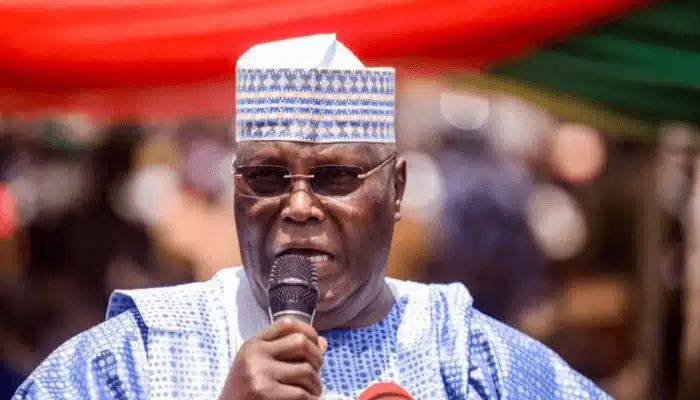In a dramatic turn of events that could reshape Nigeria’s political landscape ahead of the 2027 general elections, Ifeanyi Okowa, former Delta State Governor and 2023 vice-presidential candidate of the Peoples Democratic Party (PDP), has officially defected to the All Progressives Congress (APC). Adding to the shockwaves, current Delta State Governor Sheriff Oborevwori is also reported to have joined the ruling party, deepening the internal crisis within the PDP.
Reacting to the latest defections, Bayo Onanuga, a senior aide to President Bola Ahmed Tinubu, dismissed the political future of former Vice President Atiku Abubakar as “dead and buried.” In a strongly worded post on X (formerly Twitter), Onanuga claimed that Atiku’s grand vision of leading a formidable opposition coalition is collapsing under the weight of internal discord and mounting defections.
“Atiku’s political future looks bleak,” Onanuga wrote. “The coalition that he, El-Rufai, Babachir, and now Baba-Ahmed are attempting to build has already disintegrated. With key allies like former running mate Ifeanyi Okowa abandoning ship, and even members of the defunct Congress for Progressive Change (CPC) steering clear, Atiku’s leprous group stands no chance. Once again, Atiku is a loser.”
The coalition in question reportedly includes prominent figures such as former Kaduna State Governor Nasir El-Rufai, ex-Secretary to the Government of the Federation (SGF) Babachir Lawal, and Labour Party’s 2023 vice-presidential candidate, Yusuf Datti Baba-Ahmed. The alliance was seen as a bold attempt to unite splintered opposition forces ahead of the next electoral cycle. However, recent developments suggest that the coalition’s foundation may be far shakier than anticipated.
Tunde Rahman, another spokesperson for President Tinubu, echoed Onanuga’s sentiments. In his own statement, Rahman described Okowa’s defection as “the biggest shocker ever” for Atiku and the PDP, especially given Okowa’s high-profile role in the 2023 presidential race.
“This move not only reveals the internal fractures within the PDP but also demonstrates the APC’s growing political momentum as 2027 approaches,” Rahman said.
The defection of both Okowa and Oborevwori could have far-reaching implications—not only for the PDP’s unity and electoral strategy but also for opposition politics at large in Nigeria. Analysts suggest that these moves could lead to a domino effect, encouraging other fence-sitting politicians to switch allegiance as the ruling APC solidifies its dominance.
With Atiku Abubakar now facing increasing political isolation and dwindling support within his party, questions abound over whether the PDP can survive its ongoing turmoil, or if the party will continue to bleed members to the APC in the years leading up to the next presidential election.
As the political chessboard begins to shift, all eyes are now on Atiku and the PDP’s remaining leadership. Will they attempt a counter-move to salvage their crumbling base—or is this the beginning of the end for Atiku’s long-standing presidential ambition?



